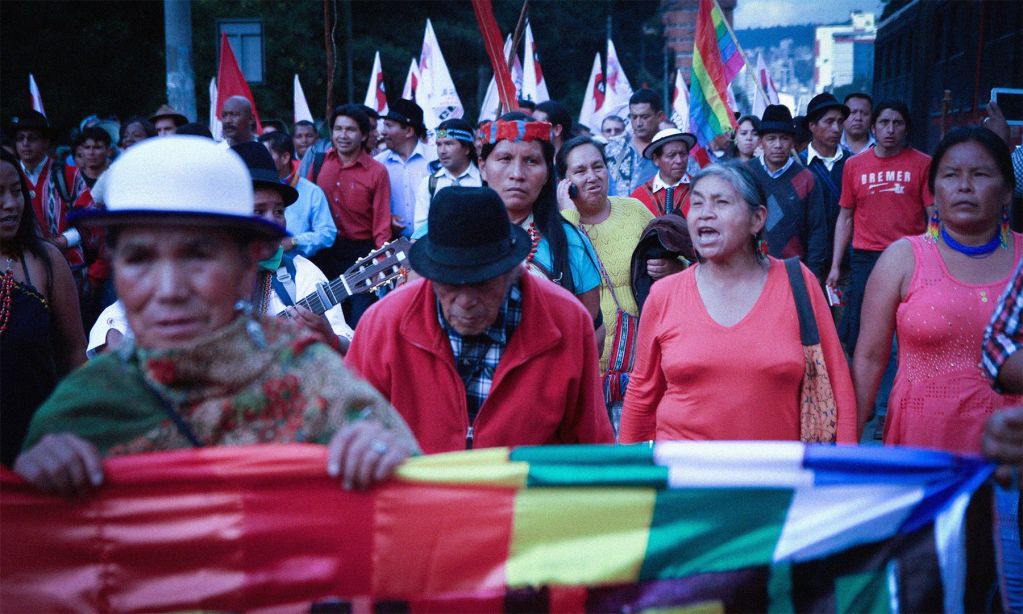On April 21, the Ecuadorian people resoundingly rejected their government’s plan to bring the country back under the thumb of international investment arbitration. The vote in Sunday’s national referendum should put an end to Canada’s plans to include investor-state dispute settlement (ISDS), which allows investors to sue governments before private tribunals for lost profits, in a planned free trade deal with Ecuador.
In fact, the entire project should be put under the microscope.
Nearly two-thirds of Ecuadorians oppose ISDS
Between 2008 and 2017, in response to a litany of expensive and controversial ISDS awards against Ecuador involving natural resources, the Rafael Correa government initiated a coordinated exit from the investment arbitration regime. Ecuador withdrew from the convention establishing the International Centre for Settlement of Investment Disputes—the most popular venue for arbitrating ISDS cases—and cancelled all of its bilateral investment treaties.
Ecuador’s constitution was amended to prohibit future governments from entering into international treaties “wherein the Ecuadorian state yields sovereign jurisdiction to instances of international arbitration in contractual or commercial disputes between the state and natural or legal persons of private nature” (Article 422). In October, Ecuador’s Supreme Court declared that the ISDS process in a recently concluded Ecuador-Costa Rica Trade Association Agreement was unconstitutional, forcing it to be dropped from the final deal.
The current government of President Daniel Noboa has been using the cover of a civil crisis to bring Ecuador back into the ISDS regime. The ISDS question in Sunday’s referendum was an underhanded attempt to grant the Noboa government authority to revisit Article 422. Buried among nine questions on changes to national security policy were two economic questions—one to reauthorize the government to sign international treaties containing ISDS and another to permit hourly labour contracts. While all of the heavy-handed security measures unfortunately passed, more than 60 per cent of voters said no to the two neoliberal economic reforms.
“This rejection [of ISDS] has been a giant victory for Ecuador’s social movements, which mounted a citizen campaign on a national scale, all in the record time of a month and a half,” writes Luciana Ghiotto of the Transnational Institute (TNI). In her referendum post-mortem, Ghiotto describes how the core campaign “managed to bring friends and political adversaries together” to ensure a “no” vote on the ISDS question.
The campaign from the Union of People Affected by Texaco/Chevron Operations (UDAPT), the Indigenous and peasant movement led by the Confederation of Indigenous Nationalities of Ecuador (CONAIE), and others like Acción Ecológica, was truly top notch. Throughout April, the CCPA amplified their work, which included video testimonials, infrographics and webinars, on X (formerly Twitter) through the Trade and Investment Research Project’s account. The CCPA also joined hundreds of organizations in signing an international letter supporting the “no” vote in the ISDS referendum.
“The country’s treaties with ISDS are not bringing investments to Ecuador, but they have had enormous negative impacts on the state’s ability to regulate foreign corporations,” the letter read. “A recent report shows that foreign investors have filed 29 ISDS claims against Ecuador so far, half of them linked to activities in the extractive sectors (hydrocarbons and mining). In two-thirds of concluded cases (14 out of 21) Ecuador lost. As a result of these cases, Ecuador has been ordered to pay foreign investors $2.9 billion USD.”
On Thursday, April 4, the CCPA co-moderated a webinar on the Canada-Ecuador trade negotiations with Amnesty International Canada and MiningWatch Canada. Speakers included representatives of Ecuadorian organizations and communities impacted by Canadian oil and mining projects and currently excluded from debate about the planned trade deal. The webinar also featured comments from UN special rapporteur David Boyd on how ISDS prioritizes the rights of transnational companies over communities and the environment.
Canada’s ISDS hopes fade in Ecuador trade deal
Despite Ecuador’s rejection of investor-state dispute settlement (ISDS) under the Correa government, and a constitutional ban on international investment arbitration, Canada’s negotiating objectives for its free trade talks with Ecuador include “rules regarding the promotion and protection of investment and investors subject to a negative list of reservations, enforced by the Agreement’s dispute settlement mechanism and a transparent [ISDS] mechanism.”
This is apparently important for Canadian mining stakeholders and mining stakeholders exclusively. According to a government summary of input received in its limited online public consultation on the deal, mining stakeholders, which represented five per cent of submissions, “noted that, by lowering investor risk, these provisions [ISDS] would have the potential to support new Canadian investment into the Ecuadorian mining sector.”
However, labour, human rights and other civil society groups, which represented nearly 20 per cent of submissions, largely opposed ISDS. As the government summary notes, these submissions expressed “concerns regarding Indigenous rights and territories as well as the right to regulate in the public interest, in particular for environmental protection. Due to these concerns, some stakeholders oppose having ISDS provisions in the FTA, while some recommend ensuring the inclusion of meaningful participation with Indigenous communities.”
Clearly, some stakeholder input is more valuable than other input to the federal government. Luckily, the April 21 referendum should settle the matter of ISDS. A footnote to Canada’s negotiating objectives states: “Notwithstanding the above negotiating objectives, in light of ongoing consideration in Ecuador of the legal compatibility between investment agreements and its domestic legal framework, it is possible that investment and services provisions may be set aside, in part or entirely, from an agreement if necessary during the negotiation process.”
Pausing the Ecuador trade talks
Canada and Ecuador are supposed to begin negotiating their comprehensive and “inclusive” free trade deal on April 29 and hope to finish within six to eight months, according to Ecuador’s trade minister. GAC officials claimed in February that a trade deal “would be economically beneficial and would provide a means to support a government in the region that shares the same ideas and values.”
There is growing opposition in Ecuador to any trade deal with Canada that does not have the informed, prior consent of the people who will be affected. The Noboa government has shown no interest in seeking out that consent—for the trade deal or for the expansion of Canadian mining projects that the deal is meant to protect. The illegal police raid on the Mexican embassy in Quito earlier this month raises serious questions about what “shared values” Canada expects to promote through the negotiations.
“This incident shows what the Ecuadorian government is willing to do,” said Kathy Price of Amnesty International Canada, in an interview with the Hill Times this week. “And they are thumbing their nose to long-standing international obligations.”
If this is how the Noboa government operates in full view of the camera, what is it up to in more remote parts of the country, Price asked. What “shared values” is this trade deal supposed to support?
On April 17, several Ecuadorian organizations including the Shuar Arutam People sent an open letter to Canada’s ambassador to Ecuador, Stephen Potter, to express grave concern about an escalation of violence and conflict associated with a Canadian mining project operated by Solaris Resources Inc. The violence follows the Noboa government’s use of armed police and military units to intimidate people opposed to Atico Mining’s gold-copper-zinc-silver project in southwestern Ecuador.
“For the second time in less than a month, communities in Ecuador are facing severe repression and are victim to acts of violence in conflicts involving Canadian mining companies who are operating in their territories,” says the letter. “Now, conflict has intensified in relation to the Canadian company Solaris Resources, which is trying to advance a copper mining project in the Ecuadorian Amazon, in the territory of the Shuar Arutam People (PSHA) without their consent and in violation of their collective right to self-determination.”
“In this context, and considering Ecuador’s very obvious conduct during the Mexico Embassy raid, the crucial question we have to ask is whether it is appropriate to move full steam ahead with Canada-Ecuador trade negotiations,” said Price in the Hill Times article.
Amnesty is encouraging people to write the Canadian government asking them to ensure human rights are prioritized in Canada’s bilateral relationship, and that Canada and Ecuador consult and acquire consent, in particular from Indigenous communities, before moving forward with the trade deal. It seems like the inclusive thing to do.







